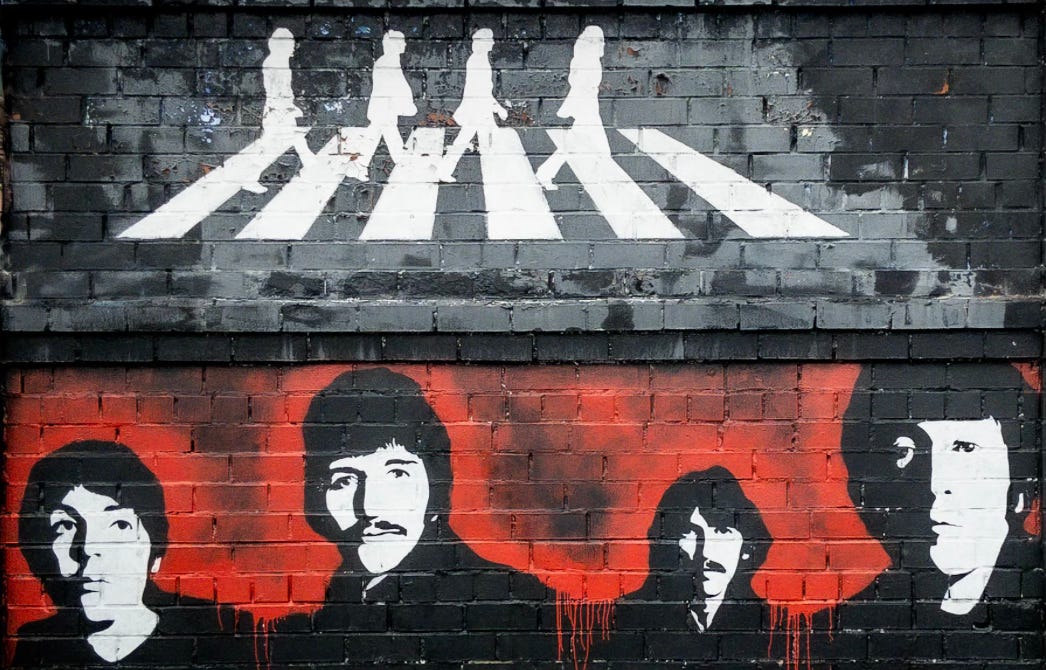-$3bn (and counting)
Reframing One Of The Costliest Mistakes In The History Of Western Culture
In the early 1960s, a junior talent scout at Decca Records made a decision that would haunt the music industry for decades. Tasked with finding new talent, he rejected a band that would go on to become one of the most iconic musical groups of all time: The Beatles. This decision, at first glance, seems like a monumental blunder—missing out on royalties that, as of 2024, exceed £3 billion and continue to rise.
But this scout’s story doesn’t end there. After leaving Decca, this apocryphal story states that he joined a rival label, where he had a chance to redeem himself. Yet again, he made a choice that would defy logic: he turned down another band destined for greatness—Queen. To most, this series of decisions would be met with a facepalm of seismic proportions.
However, there is another way to view this story—one that offers a different perspective on talent, decision-making, and what it means to have a unique strength.
What if, instead of seeing this talent scout as a failure, we viewed him as someone who possessed a unique ability? A kind of reverse genius, if you will—an uncanny knack for rejecting greatness.
While this may sound counterintuitive, it actually highlights a powerful concept: that our Superstrength might not be what we expect.
The Unlikely Superstrengths of this Talent Scout
Famously rejecting The Beatles and then Queen may have seemed like he was making all the wrong choices. Yet, his story reveals something more nuanced about decision-making and personal strengths. While his decisions didn’t align with the mainstream or popular opinion, they demonstrate a consistent, albeit inverted, ability to identify what didn’t fit his employers' vision. This suggests a different kind of strength—one that operates against the grain of conventional wisdom.
In a world overflowing with choices, it’s easy to focus on what’s “right” and what’s “wrong.” But what if there’s value in the unexpected?
Rather than dismissing this as mere incompetence, what if we view his decisions as a form of distinctiveness. In fact, his unique perspective could have been valuable in certain contexts where recognising what doesn’t work is as important as knowing what does.
He made bold choices, even if they were controversial. In a world where indecision can be paralysing, being able to make a choice—right or wrong—is a strength in itself. It demonstrates confidence, risk-taking, and a willingness to stand by one's convictions. Even if those decisions lead to unexpected outcomes, they show a capacity for action and resilience.
Embracing Unconventional Strengths
The story of the talent scout teaches us that strengths come in many forms. Sometimes, they manifest in ways that defy conventional logic. Michael Jordan, often regarded as the greatest basketball player of all time, was cut from his high school team as a sophomore. This early setback could have been seen as a failure, but instead, it became a defining moment that fueled his drive to succeed. Jordan’s story, like the talent scout’s, illustrates the paradox of decision-making: sometimes, making the wrong decision—or being on the receiving end of one—is part of the journey to discovering your true strength.
In professional sports, business, and even art, the concept of Superstrengths has shown that embracing what makes you different—what sets you apart from the crowd—can be the key to achieving greatness. It's about recognizing that what might initially seem like a weakness could actually be your greatest asset when viewed from a different angle.
Conclusion: Stand Out by Being Unique
In a world where choice is truly infinite, the challenge is sometimes not just to be good, but to be unique. The story of the talent scout who rejected both The Beatles and Queen offers a valuable lesson: sometimes, your greatest strength lies in what makes you different, even if that difference doesn’t conform to conventional expectations.




